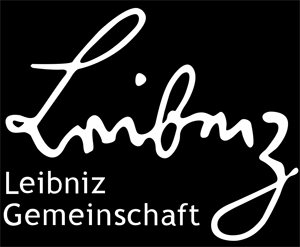Focus Topics
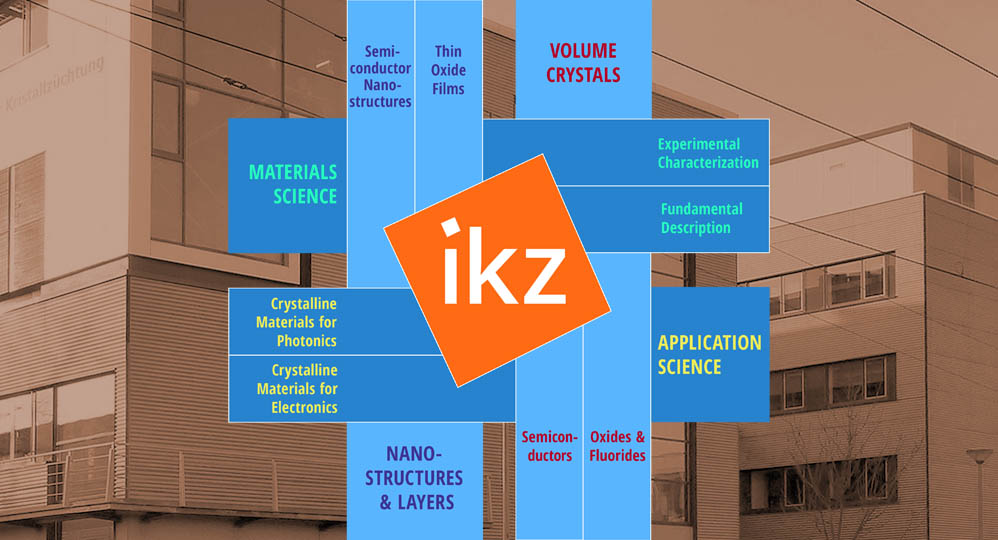
IKZ R&D Focus Topics
The research departments at IKZ are organized in a 2 x 2 matrix structure to promote cooperation between all departments (see illustration above). This goes along with a high level of interdisciplinarity in our research and development work, which is a corner stone for the success of our projects with academic and industrial partners. This concept is particularly evident in our selected focus topics.
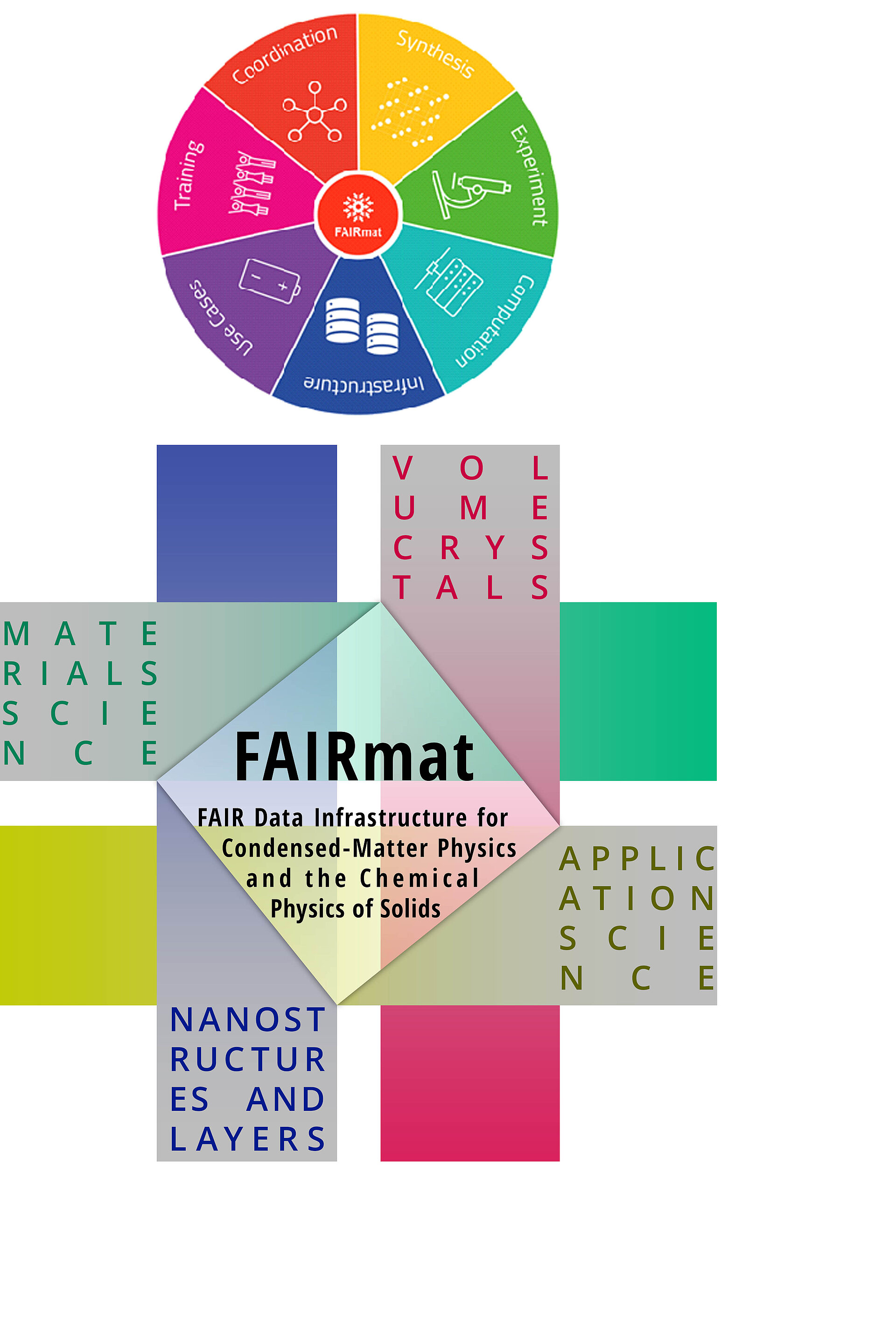
Digitalization of Material Science
Digitalization strategy at IKZ Berlin
Materials science data represent a goldmine of the 21st century when comprehensively characterized and made available. Typical challenges in materials science include heterogeneity of data, lack of a data sharing culture and lack of an appropriate associated infrastructure, non-standard data formats, data confidentiality, and lack of data management.
A FAIR (findable, accessible, interoperable and reusable) data infrastructure is the necessary prerequisite to easily share data and explore it with data analytics and artificial intelligence methods [Ref. Nature Paper]. The goal is to build such a data infrastructure at the IKZ that facilitates the application of digital technologies to create new added value and extend existing knowledge. The goal is to integrate all of the institute's research data into a FAIR infrastructure in 10 years and to automate data ingestion as much as possible.
The main contribution to the realization of our goals is the collaboration in the FAIRmat project, in which such a FAIR data infrastructure for condensed matter physics and chemical physics of solids is being built. In order to implement the goals in the institute, a digitalization workgroup was formed, in which all sections of the institute are represented. Topics of this workgroup are development of a digitalization strategy, data governance, research data management, training and education of staff.
Please contact Sebastian Brückner for more information.
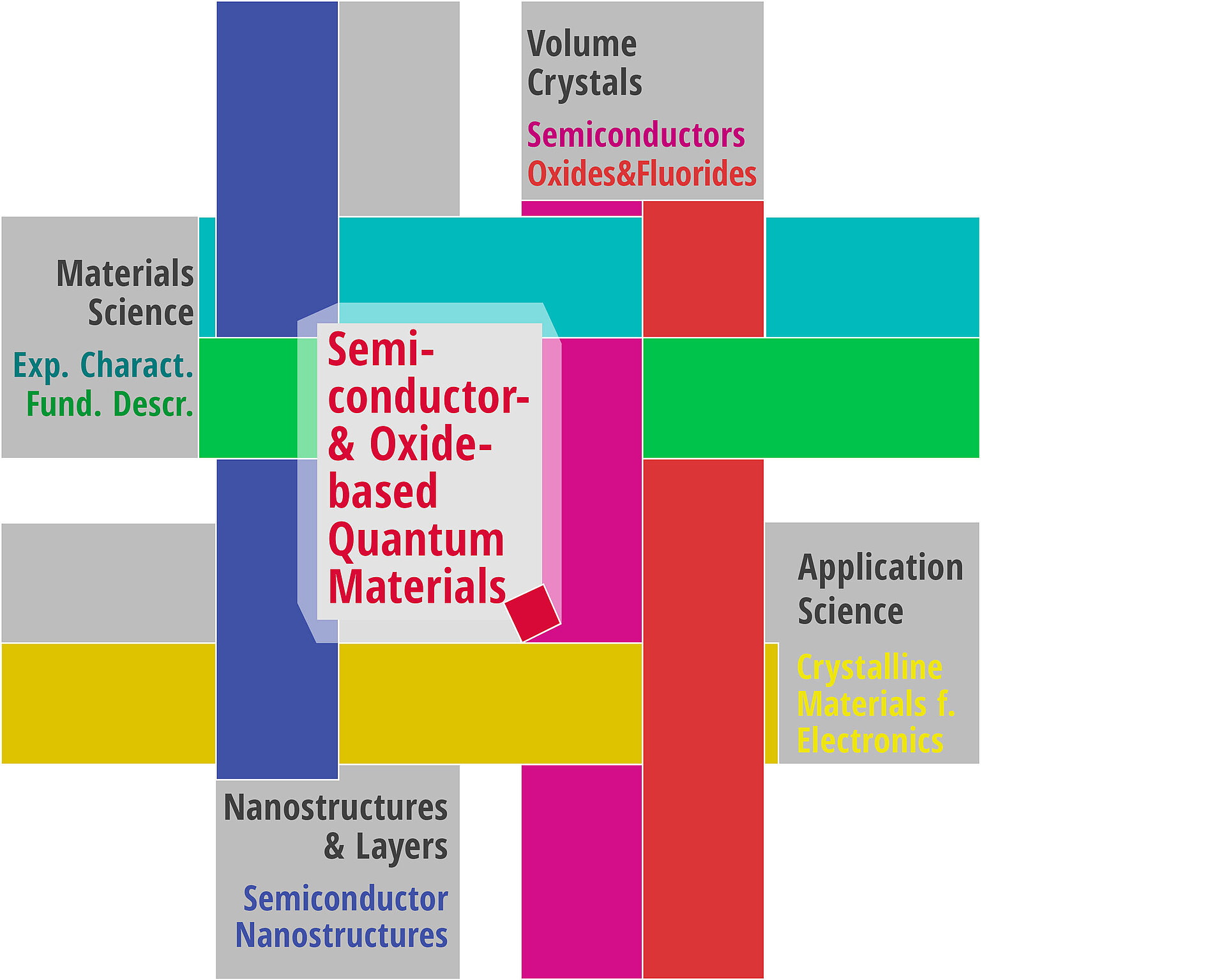
Further field of research
In addition to the “core activities” in the field of volume crystal growth, the IKZ supports both internal (e.g. within the framework of MagSQuant) and external crystal growth activities through numerical simulations (Section Fundamental Description):
In a joint DFG-ANR project with the SIMaP in Grenoble, crystal growth from solution is being investigated using in-situ microscopy (SIMaP) and kinetic Monte Carlo simulations (Section Fundamental Description). Herbertsmithite is the system of an ideal spin liquid and thus opens up possibilities for novel data storage and a topological quantum computer. Tailor-made crystals are a prerequisite for in-depth investigations of this system.
Semiconductor- & Oxide-based Quantum Materials
Semiconductor-based quantum materials
The FZ-Si (Floating-Zone-Silicon) group of the IKZ in the section Volume Crystals / Semiconductors supports academic and industrial research with its expertise in isotopically pure crystals such as silicon-28 and in high purity classical silicon crystals.
On the one hand, this expertise is also used inhouse by our IKZ section Nanostructures & Layers / Semiconductor Nanostructures which works on 28Si-based heterostructure approaches for the design of scalable spin qubits as the core of quantum computers. On the other hand, ultra-pure silicon crystals will improve the relaxation times of the superconducting quantum bits in devices of the BMBF project partners and thus increase the efficiency and stability of the quantum technology based on them.
Oxide-based quantum materials
Together with partners, we develop novel materials for low-loss, miniaturized and integrable components based on magnetic and superconducting circuits. One key element is the development of magnetic thin films that exhibit long-lasting magnetic excitations - so-called magnons. These materials will be based on a special oxidic substrate- thin-film system that guarantees a particularly long magnon lifetime at the ultra-low operating temperatures of superconducting circuits. The IKZ is particularly active in the field of substrate crystal development.
The BMBF joint project “MagSQuant“, coordinated by the IKZ, includes the Association for the Promotion of Innovation through Research, Development and Technology Transfer e. V. (INNOVENT e.V.) in Jena, the University of Kaiserslautern-Landau (RPTU) and the Friedrich-Alexander-Universität Erlangen-Nürnberg as partners.
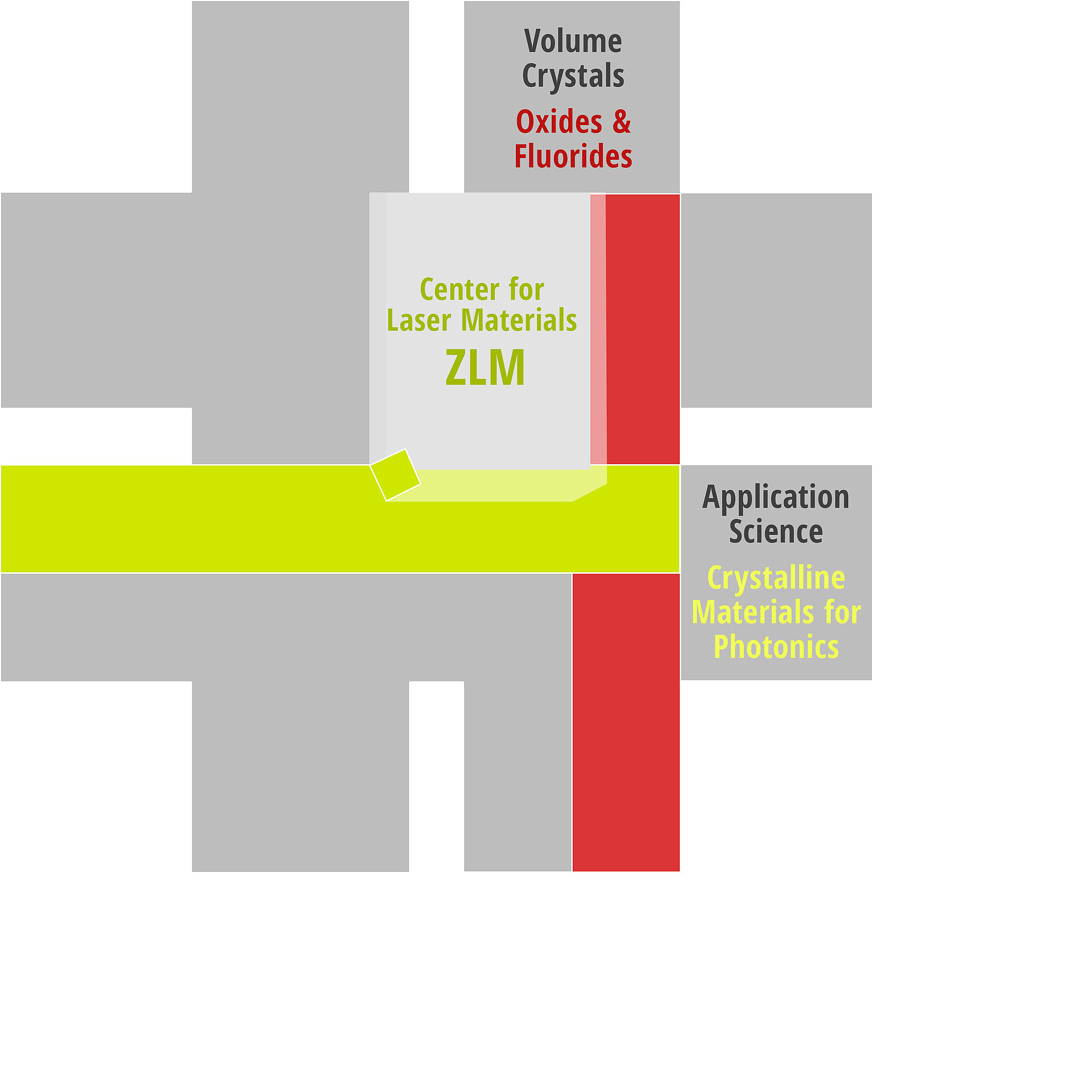
Center for Laser Materials
Innovative materials for laser applications
The Center for Laser Materials at IKZ belongs to the section Application Science / Crystals for Photonics and works closely with the IKZ section Volume Crystals / Oxides & Fluorides and their junior research group "Fluoride Crystals for Photonics Applications".
It is established to act as one-stop shop to support academic and industrial partners on research & development of laser materials that open up new wavelength ranges, enable more efficient laser operation or higher output power.
Download Flyer: „Center for Laser Materials“
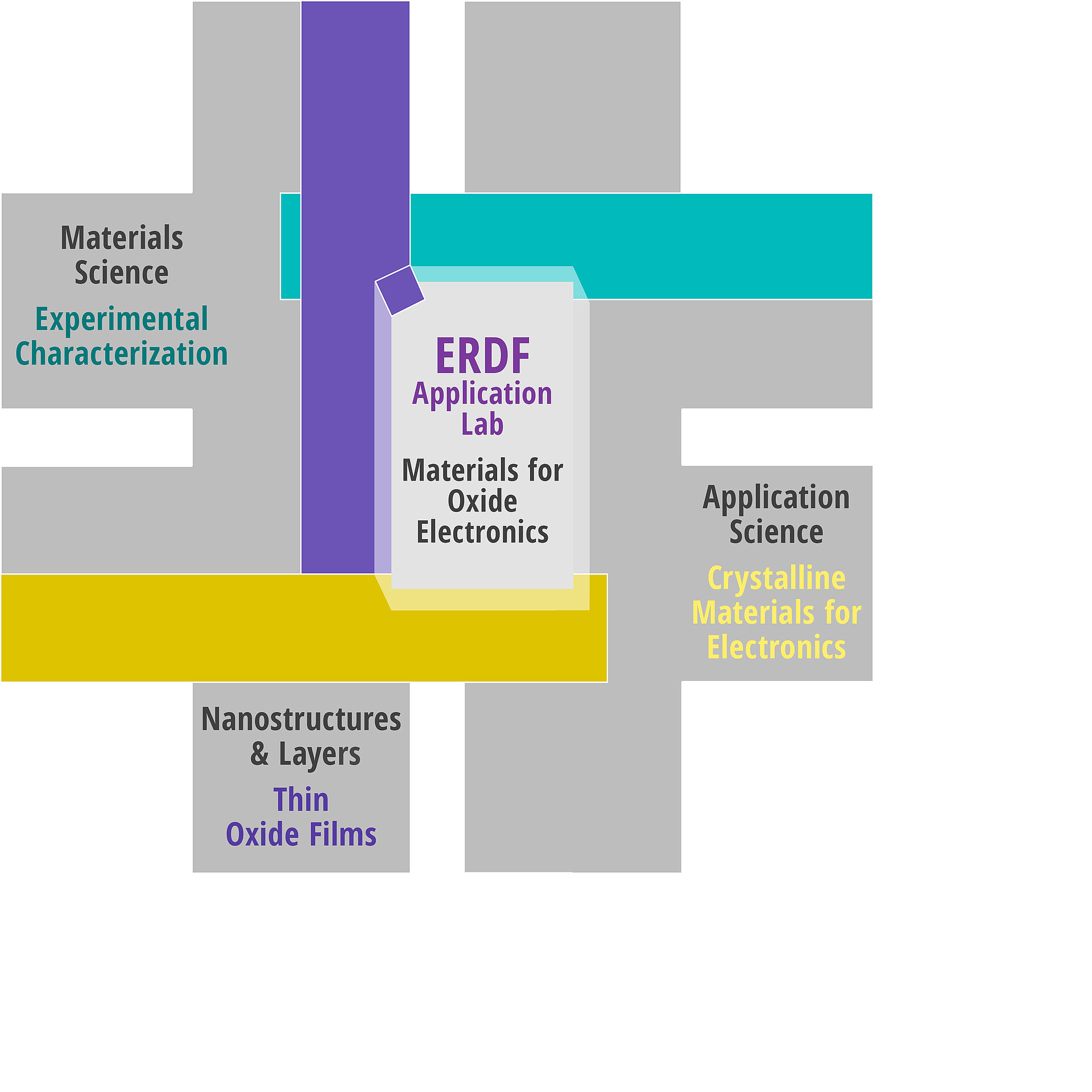
ERDF Application Laboratory
Materials for Oxide Electronics
The ERDF Application Lab ´Materials for Oxide Electronics` is a part of the section Nanostructures & Layers / Thin Oxide Films. Its mission is to promote innovative applications in the area of future oxide electronics by tailoring the properties of functional oxide thin films. Examples are given by biomedical ferroelectric sensors for Internet of Things, active x-ray optics for time resolved studies or next generation Ga2O3 power electronics. The IKZ section Materials Science / Experimental Characterization is strongly involved to promote these activities.
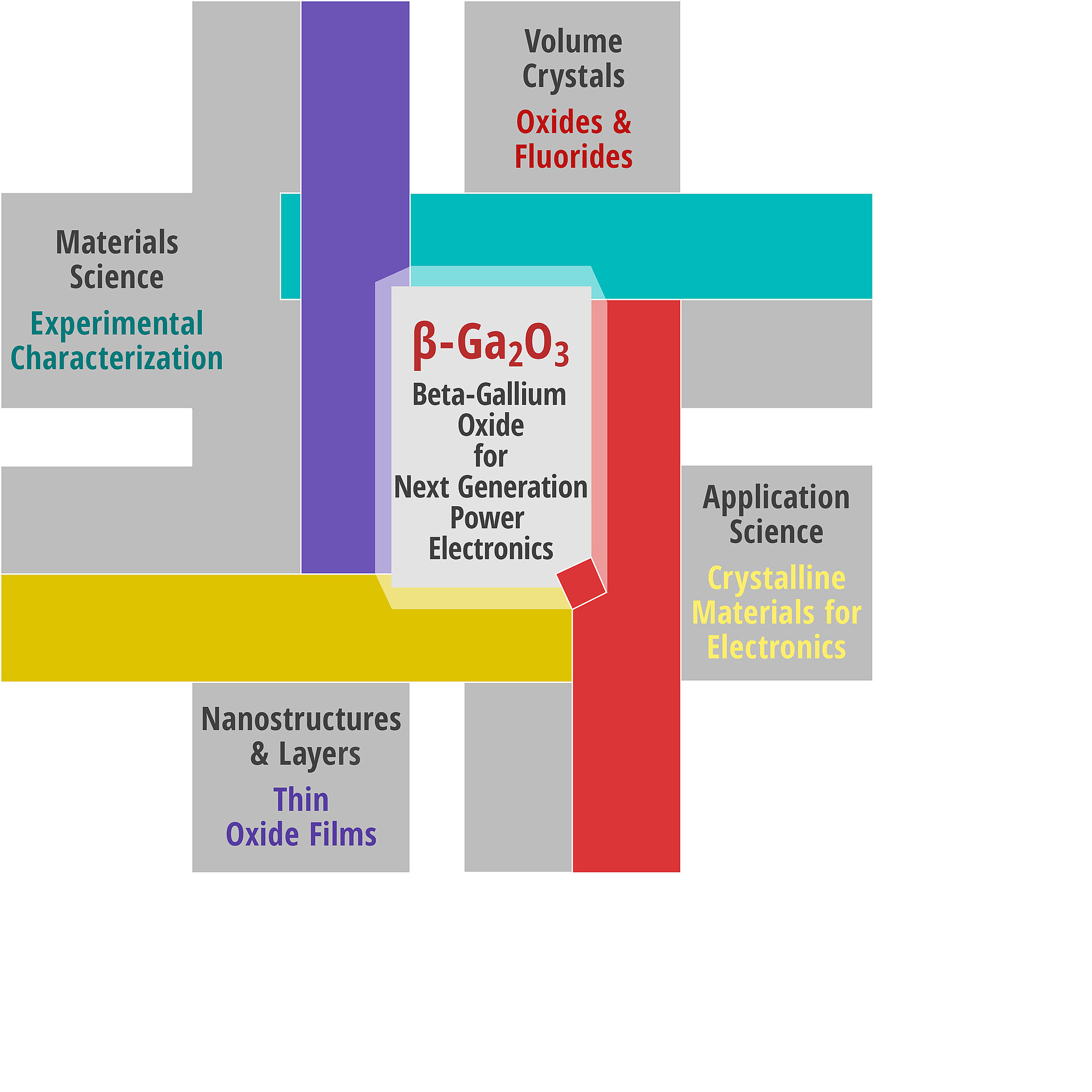
Beta-gallium oxide
Next generation power electronics
Modern society is based on a high number of electrical systems in communication, industrial production, e-mobility etc. A central challenge is here the efficient and climate friendly conversion of electrical energy so that EU Green Deal targets can be reached. Silicon carbide (SiC) and gallium nitride (GaN) reach higher breakdown field strengthes than silicon so that compact device architectures can be realized by more sustainable process technologies. β-Ga2O3 crystals reach an even twice as high breakdown field strength with lower on-resistance values so that this material system is considered as a promising candidate for next generation power electronics.
IKZ is today internationally leading in the area of Czochralski-volume crystal growth of β-Ga2O3 and the epitaxy of functional β-Ga2O3-layers by metal organic vapor phase deposition (MOVPE). These activities are intensively supported by our Materials Science / Experimental Chracterization to study fundamental physics phenomena and Application Science / Crystals for Electronics for substrate preparation.
